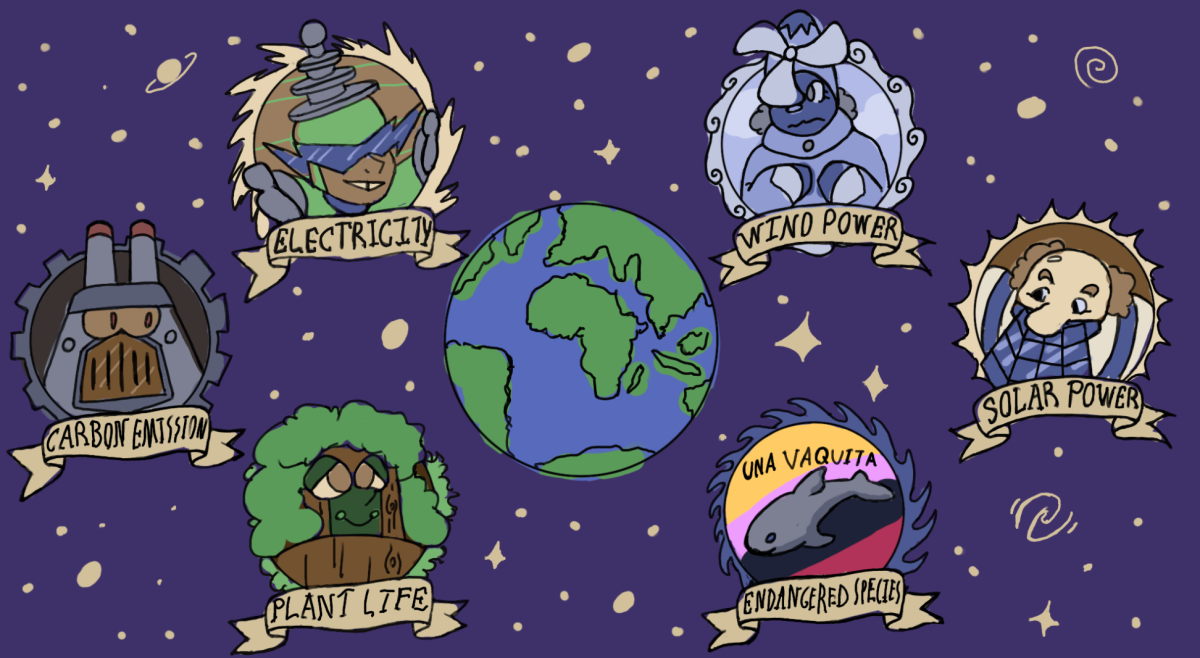The study of environmental ethics considers the intersection between ecological science and philosophy. It primarily focuses on what, if any, responsibility humans have for the care and protection of the environment.
Humans interact with and alter their environment just like any other animal. However, the size and scale with which humans change the world gives them the unique position of being able to determine the future of the environment.
Emily Herrington is an assistant teaching professor of science, technology and society. She teaches an interdisciplinary studies course in environmental ethics.
Herrington noted that her definition of environmental ethics is constantly developing, as there are many different frameworks for ethical thought and application. However, she has found that the book “Emergent Strategy” by Adrienne Maree Brown provides an excellent foundation.
“It helped me to feel like the small things we do to care for each other and the Earth can make a difference, especially when we do them over and over again to the point where they make patterns and those patterns emerge into strategies,” Herrington said.
Environmental ethics encompasses an extensive list of components. The truth is, it can mean something different for everyone. Just like in all areas of ethical study, the bottom line is to reduce negative impact.
“For me, ethics is the goal of doing things in a way that causes the least possible harm to other people and the world around us,” Herrington said.
This can often feel impossible in a world where instant gratification is prioritized. It’s difficult to pause and weigh the impacts of habitual actions that can have a long-term negative impact on the environment.
To find a starting point for framing your view of environmental ethics, imagine how you want the world to be and start asking the questions to make that happen.
“What it means to be critical is not to be negative,” Herrington said. “Often it’ll sound negative because you’ll be saying, ‘Why isn’t it this other way? Why can’t it be nicer?’ But always ask that question.”
Students and organizations at NC State have continued asking questions about how we could better shape the future of the environment.
Noah Liguori-Bills is a Ph.D. candidate in marine, earth and atmospheric sciences and an active member of Students for Decarbonization, an organization that seeks environmental preservation by transitioning NC State away from investment in fossil fuels.
“Students for Decarbonization believes that people’s obligation to the environment is to transition away from fossil fuels and decarbonize the way that we generate our energy and run our economy,” Liguori-Bills said. “The main reason for that is because when we burn fossil fuels, we release greenhouse gasses which exacerbate the climate crisis.”
Burning fossil fuels such as coal, petroleum and natural gas emits greenhouse gases like carbon dioxide and methane which accumulate in the atmosphere. Heat energy from the sun bounces off the Earth’s surface and is absorbed and trapped by these greenhouse gases. This causes the temperature of the Earth to increase as more greenhouse gases are emitted, and therefore more heat is unable to escape from our atmosphere.
There are a range of consequences related to the Earth getting warmer, but one of the strings tying it all together is mass habitat destruction. More severe weather, melting of polar ice caps and the inability of many species to adapt to the rising temperatures will cause ecosystems to collapse. There are a lot of things that can go wrong when stuck in an oven slowly starting to warm up.
Divesting, or taking money out of fossil fuels and into renewable energy, has become a forerunner in efforts to reduce greenhouse gas emissions.
“NC State has over $40 million directly invested in the fossil fuel industry, even though this is something relevant to the future of every single person’s life,” Liguori-Bills said.
Many forerunning universities such as New York University and Harvard University have already moved to divest their endowments from the fossil fuel industry.
Liguori-Bills said he believes Students for Decarbonization and NC State hold similar environmental ethics beliefs, but the university needs to start taking action.
“NC State has sustainability policies which include quotes about taking a proactive approach,” Liguori-Bills said. “With a few big but simple changes, they could easily align their beliefs with their actions.”
The Sustainability Stewards is another organization dedicated to environmental action at NC State.
Kirk Porter, a second-year studying civil engineering, is a member of the Equity and Outreach team within the Sustainability Stewards.
“The Equity and Outreach team spends a year focusing on unique issues that we think have precedence in the NC State community, North Carolina and the world,” Porter said.
This year, the Sustainability Stewards are hosting an environmental justice symposium, which will illuminate how historically marginalized groups are disproportionately affected by environmental issues. The 2025 symposium will feature an art showcase in collaboration with the North Carolina Museum of Art, a film screening about Indigenous voices and more.
“Universities as a whole should embrace sustainability as a holistic idea and steep it into everything that they do,” Porter said. “NC State has a lot of great sustainability initiatives, but there’s still a long way to go.”
If you’re interested in getting involved, Sustainability Stewards accepts applications for all students during the spring semester and Students for Decarbonization meets on Wednesdays at 5:15 p.m. in Cox Hall.








